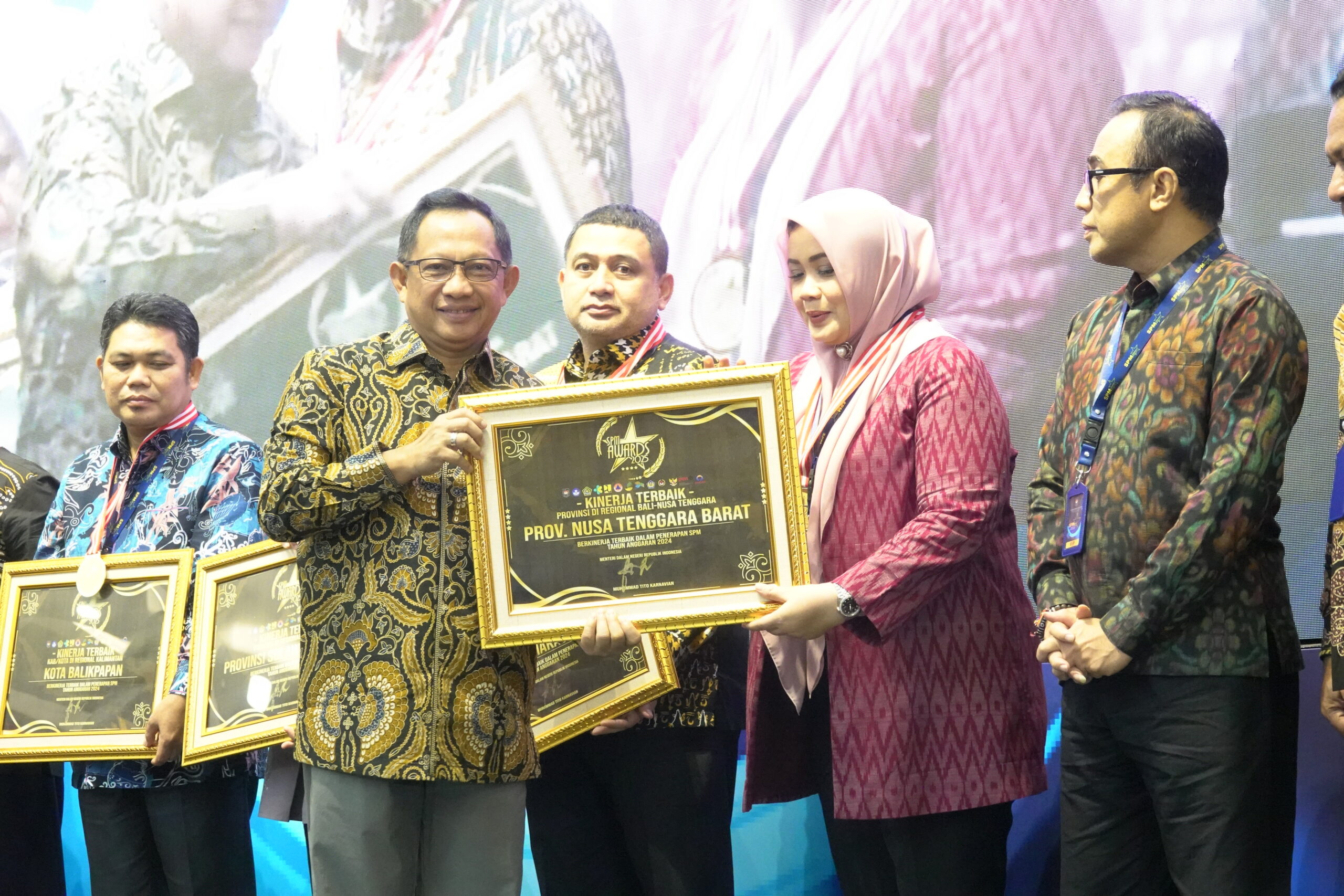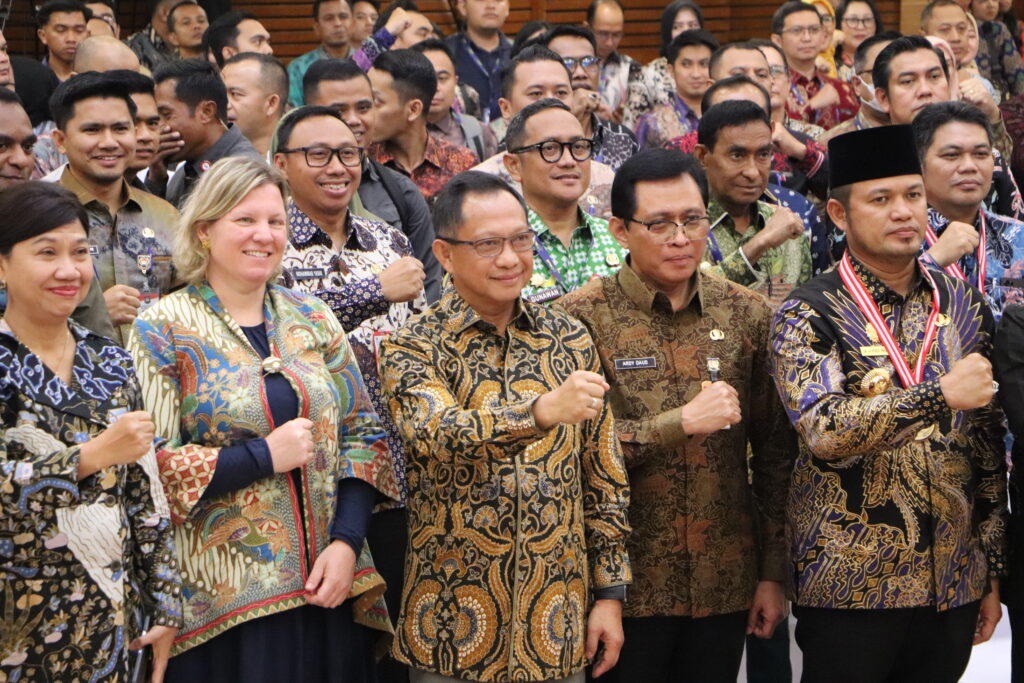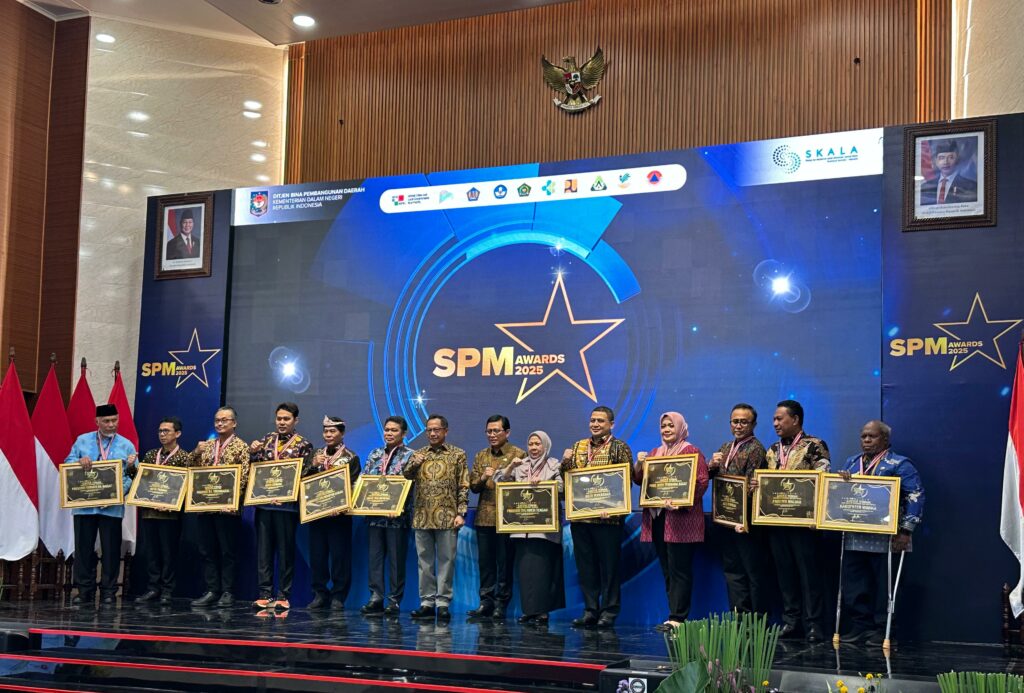SPM Awards 2025: Championing Local Innovation to Reach the Most Vulnerable

From remote islands to urban centres, local governments across Indonesia continue to demonstrate that meaningful innovation often begins at the local level, especially when it comes to reaching those most in need. Held in Jakarta on 23 May 2025, the SPM Awards 2025, hosted by the Ministry of Home Affairs through the Directorate General of Regional Development, celebrated this very commitment: championing local solutions to deliver basic services, even in the face of fiscal challenges.
The SPM Awards are an annual initiative that recognise local governments for their performance in implementing the Minimum Service Standards (Standar Pelayanan Minimal or SPM) – six key areas of basic services that are guaranteed for all citizens. These include education, health, public works, housing, public order and safety, and social services. Through the Awards, the national government encourages faster progress, stronger coordination, and ongoing innovation in public service delivery across the archipelago.
“The SPM Awards are more than a form of recognition; they represent the country’s commitment to upholding the fundamental rights of its citizens. We hope this year’s achievements will inspire other regions to accelerate the delivery of inclusive and sustainable public services,” said Minister of Home Affairs Tito Karnavian.
According to national monitoring systems, a total of 44 local governments have achieved full compliance status in SPM implementation. Awards were presented to the top three performing provinces, three regencies and three cities. Special recognition was also given to three island-based regions for their consistent implementation efforts, as well as to two top performers from each of the six regional zones (Sumatra, Java, Kalimantan, Sulawesi, Bali–Nusa Tenggara and Maluku–Papua) and to one province for its active mentoring role.
Assessment was based on a set of indicators jointly developed by the Ministry of Home Affairs and relevant sectoral ministries. These included performance on the SPM Index (IP-SPM), budget commitment levels, the effectiveness of local implementation teams, action plan implementation, and consistent quarterly reporting via the web-based e-SPM platform.
Innovating through Constraints
The 2025 SPM Awards have become increasingly relevant in light of the national focus on budget efficiency, as mandated by Presidential Instruction No. 1 of 2025. Despite fiscal constraints, many local governments have demonstrated that they are able to effectively prioritise the delivery of basic services through budget optimisation.
- In North Maluku Province, where fiscal capacity is limited, the local government introduced the BOSDA (Regional Operational Assistance Program) to cover school fees for all senior high school students in both public and private schools.
- In Kaimana District, Papua Barat, the government provides free education from kindergarten to senior high school level. It also prioritises access to clean water and well-planned urban spaces, supported by Special Autonomy Funds which are managed efficiently and responsibly.
- West Nusa Tenggara (Nusa Tenggara Barat/NTB), a SKALA partner province, was named the top performer in SPM implementation for the Bali–Nusa Tenggara region, with the award received by Vice Governor Indah Dhamayanti Putri.
- North Kalimantan (Kalimantan Utara), also a SKALA partner province, was recognised as the best-performing province in SPM implementation for the Kalimantan region, with Governor Zainal Arifin Paliwang accepting the award.
- Maluku, another SKALA partner province, received the top SPM award for Maluku-Papua region, which was formally presented to Vice Governor Abdullah Vanath.
These examples emphasise the crucial role of local leadership and cross-sector collaboration in upholding and protecting the right to basic services. The 2025 SPM Awards are a powerful reminder of the tangible impact that good governance can have on the ground.
“The SPM Awards aim to strengthen local leadership, promote strong coordination between national and subnational governments, and recognise local performance. This year, 44 local governments have achieved paripurna (full compliance) status,” said Director General of Regional Development at the Ministry of Home Affairs, Restuardy Daud.
Partnership for Scaled-Up Impact
The 2025 SPM Awards also demonstrate the potential for scaling up successful local initiatives. This momentum is supported by SKALA, the Australia–Indonesia Partnership for Acceleration of Basic Services, which provides technical assistance, capacity building and policy facilitation to strengthen data-driven governance and inclusive service delivery for subnational governments.
“The Australian Government is proud to support the implementation of SPM through partnerships that build strong systems and solid data foundations. Congratulations to all the award recipients. We look forward to continuing our collaboration to help ensure that basic services are accessible and inclusive for all communities,” said Counsellor for Governance and Human Development at the Australian Embassy in Jakarta, Hannah Derwent.
The SPM Awards are an important incentive for local governments to build on the innovations they have already implemented. As efforts move forward, it is essential to strengthen locally-generated revenue and ensure access to reliable, transparent and accountable financing. Sustainable and mutually supportive partnerships will be key to improving and expanding inclusive and equitable basic services.








